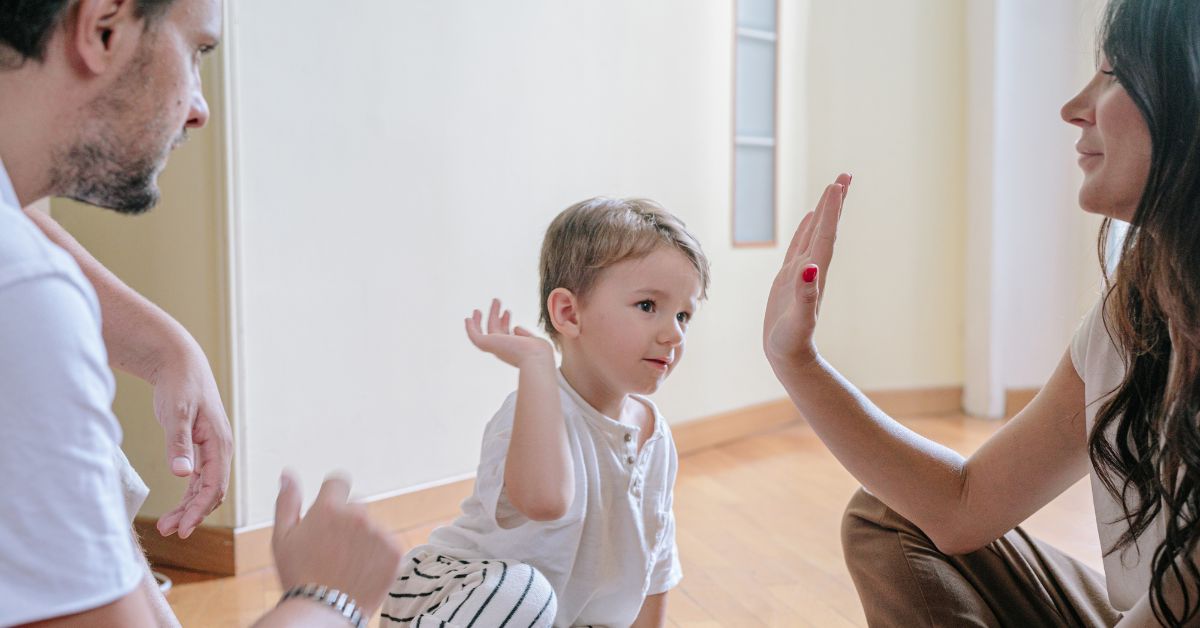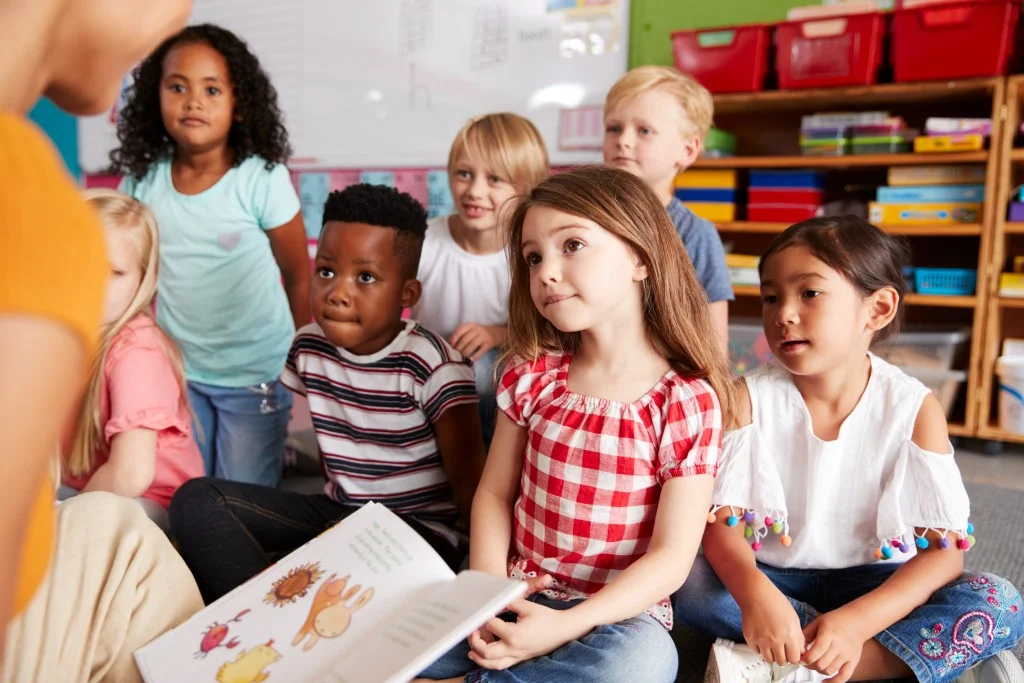Top 10 Ways Mediation Resolves Co-Parenting Disputes
Resolve co-parenting disputes effectively by utilizing mediation. Establish clear communication channels, develop detailed co-parenting plans, and encourage cooperation. Address conflicts over schedules, holidays, and parenting styles. Manage finances and child support efficiently while creating boundaries. Improve parenting skills and prioritize your children’s best interests. Mediation fosters communication, collaboration, and compromise to guarantee positive outcomes.
Key Takeaways
- Facilitates open dialogue and active listening to address concerns effectively.
- Helps define clear co-parenting plans and responsibilities.
- Encourages compromise and collaboration to find mutually beneficial solutions.
- Provides a neutral environment to manage conflicts and reach agreements peacefully.
- Supports parents in developing communication skills and fostering understanding.
Establishing Communication Channels

To effectively navigate co-parenting disputes, establishing clear and open communication channels is essential for fostering a cooperative co-parenting relationship.
Effective communication is the cornerstone of trust-building between co-parents. By openly discussing concerns, sharing information, and actively listening to each other, you can create a foundation of trust that’s vital for successful co-parenting.
Conflict resolution is an important aspect of co-parenting, and mediation techniques can be valuable tools in addressing disagreements. Through mediation, a neutral third party can help facilitate discussions, guide communication, and assist in finding mutually beneficial solutions.
Learning how to communicate effectively, practice active listening, and utilize mediation techniques can greatly enhance your ability to resolve conflicts amicably and promote a healthy co-parenting environment.
Developing Co-Parenting Plans

Establishing a detailed and all-encompassing co-parenting plan is essential for outlining responsibilities, schedules, and expectations to guarantee a harmonious co-parenting relationship.
When developing co-parenting plans, it’s important to address parenting time and custody arrangements to make sure clarity and reduce potential conflicts. Clearly defining when each parent will have parenting time helps set expectations and provides structure for both parents and children.
Additionally, outlining custody arrangements, such as decision-making responsibilities and living arrangements, can prevent misunderstandings and disputes in the future.
Encouraging Cooperation and Compromise
To effectively navigate co-parenting disputes, fostering collaboration and communication is essential.
By encouraging cooperation and compromise, mediation can facilitate mutual understanding between co-parents.
These foundational principles often lay the groundwork for sustainable agreements that prioritize the well-being of the children involved.
Foster Collaboration and Communication
Encouraging collaboration and communication in co-parenting disputes is essential for fostering a healthy and cooperative relationship between both parties. Conflict resolution becomes more achievable when effective communication is prioritized.
In mediation, the focus is on creating a space where both parents can express their concerns openly and actively listen to each other’s perspectives. Through facilitated discussions, parents can work together to find common ground, leading to compromises that benefit the well-being of their children.
Mediation helps parents develop communication skills that can be applied outside the sessions. Learning to communicate effectively during disagreements can prevent conflicts from escalating and aid in finding mutually acceptable solutions.
Facilitate Mutual Understanding
In the mediation process, facilitating mutual understanding between co-parents is essential to encouraging cooperation and reaching compromises that benefit the well-being of their children.
To achieve this, empathy exercises play a vital role. By engaging in empathy exercises, co-parents can step into each other’s shoes, gaining a deeper understanding of the other’s perspective and emotions. This helps in fostering empathy and compassion, paving the way for more effective communication and collaboration.
Active listening techniques are another key tool in facilitating mutual understanding during co-parenting mediation. Encouraging co-parents to actively listen to each other without interruptions or judgment can create a safe space for honest and open communication.
Through active listening, co-parents can focus on truly understanding each other’s concerns, needs, and desires, leading to a more productive dialogue and increased mutual understanding.
Addressing Parenting Styles and Decisions

When addressing parenting styles and decisions in co-parenting mediation, it’s essential to find harmony in your approaches to raising your children. Understanding each other’s perspectives and values can lead to better decision-making alignment.
Mediation can offer strategies to help you both reach a consensus on important co-parenting matters.
Style Harmony Discussion
Consider the importance of aligning your parenting styles and decisions when managing co-parenting disputes through mediation. Co-parenting dynamics can be complex, especially when each parent has different styles and approaches.
To navigate these differences effectively, communication strategies play a vital role in finding common ground and fostering understanding between both parties.
During mediation sessions, discussing your parenting styles and decisions openly can lead to fruitful outcomes. By understanding each other’s perspectives and the reasoning behind certain parenting choices, you can work towards a harmonious co-parenting relationship.
Mediators often facilitate these discussions by encouraging active listening and constructive dialogue, helping you both bridge gaps in your approaches.
Acknowledging the impact of your parenting styles on your children can also motivate you to find common ground. Remembering that your children benefit most from consistency and cooperation can serve as a driving force to resolve disputes amicably.
Through mediation, you can explore ways to blend different parenting styles effectively, creating a cohesive approach that prioritizes your children’s well-being.
Decision-Making Alignment Tips
Aligning your decision-making processes with your co-parent’s parenting styles is key to fostering a harmonious co-parenting relationship through mediation.
Conflict resolution and decision-making harmony are essential components in maneuvering the complexities of co-parenting. When addressing parenting styles and decisions, it’s important to approach discussions with empathy and understanding towards your co-parent’s perspective.
To achieve decision-making alignment, it’s essential to establish open communication channels with your co-parent. Clearly expressing your thoughts and actively listening to their concerns can help bridge any gaps in understanding. Through mediation, you can work together to identify common ground and find solutions that accommodate both parties’ preferences.
It is also beneficial to set aside differences and focus on the well-being of your children when making decisions. Prioritizing their needs above personal preferences can help in reaching agreements that serve the best interests of the children.
Co-Parenting Consensus Strategies
Establishing a common ground for addressing parenting styles and decisions is essential in managing co-parenting challenges effectively. When co-parents have differing views on child-rearing, conflict resolution becomes paramount. Mediation techniques can help bridge the gap by facilitating productive discussions and fostering understanding between parents.
By engaging in open communication and actively listening to each other’s perspectives, co-parents can work towards creating co-parenting agreements that consider both parties’ preferences and priorities.
Effective communication strategies play an important role in reaching consensus on parenting styles and decisions. Co-parents must be willing to compromise and find common ground to promote the well-being of their children. When disagreements arise, approaching them with a collaborative mindset and a focus on finding solutions can lead to more harmonious co-parenting relationships.
Ultimately, by utilizing mediation techniques and establishing clear co-parenting agreements, co-parents can navigate parenting differences with empathy and understanding, fostering a positive co-parenting environment for their children.
Resolving Conflict Over Schedules and Holidays
Managing conflicts over schedules and holidays can be a challenging aspect of co-parenting, requiring open communication and flexibility from both parties.
When it comes to holiday custody and scheduling conflicts, tensions can run high as both parents may want to spend special occasions with their children. Vacation arrangements can also lead to custody battles if not handled delicately.
Mediation can be instrumental in resolving these disputes by providing a neutral space for discussions and helping parents find mutually agreeable solutions. By facilitating conversations around creating fair and balanced schedules, mediators empower parents to take into account each other’s perspectives and prioritize their children’s well-being.
Through effective communication and compromise, parents can develop a holiday custody plan that considers both their desires and the best interests of the children. Mediation offers a structured approach to addressing these sensitive issues, promoting collaboration and understanding between co-parents for smoother co-parenting dynamics.
Fostering Mutual Respect and Understanding
Encouraging open dialogue and empathy is vital in fostering mutual respect and understanding between co-parents facing disagreements. Building trust forms the foundation for effective co-parenting, enabling both parties to feel secure in their interactions.
Through mediation, promoting collaboration becomes achievable as the focus shifts towards finding common ground rather than escalating conflicts. Enhancing communication skills is an essential aspect of fostering mutual respect, as clear and respectful communication can prevent misunderstandings and promote a more harmonious co-parenting relationship.
Additionally, fostering empathy towards each other’s perspectives can help co-parents navigate disagreements with a sense of understanding and compassion.
Managing Finances and Child Support

To navigate financial matters and child support responsibilities effectively, it’s essential for co-parents to establish clear agreements and maintain transparency in their dealings. Childcare arrangements and financial agreements are vital components that require detailed attention to guarantee the well-being of the children involved.
When managing finances, it’s important to establish a system that outlines how expenses related to the children will be divided. This can include costs for schooling, extracurricular activities, medical bills, and basic necessities. By clearly defining financial responsibilities, co-parents can avoid misunderstandings and conflicts.
Childcare arrangements should also be clearly outlined to ensure that both parents are actively involved in the children’s upbringing. This includes determining schedules for visitation, holidays, and special occasions. Setting up a structured plan for childcare not only benefits the children by providing stability but also helps co-parents work together harmoniously.
Through open communication and a willingness to cooperate, co-parents can effectively manage their finances and child support responsibilities, ultimately creating a positive environment for their children to thrive.
Creating Boundaries and Responsibilities
Establishing clear boundaries and responsibilities is essential in fostering a healthy co-parenting dynamic. When setting boundaries, it’s important to communicate openly and honestly with your co-parent. Clearly defining each person’s roles and responsibilities can help avoid misunderstandings and conflicts down the road.
Shared responsibilities should be divided fairly, taking into account each parent’s strengths, availability, and the best interests of the children. Effective boundary setting involves discussing important aspects such as decision-making processes, parenting styles, and rules for consistency in both households. By clearly outlining boundaries, both parents can feel more secure and confident in their roles, leading to a more harmonious co-parenting relationship.
Additionally, establishing responsibilities ensures that tasks are shared equitably, reducing the chances of resentment or feelings of unfairness.
Improving Parenting Skills and Strategies

Improving your parenting skills and strategies is essential for managing co-parenting challenges effectively and fostering a positive environment for your children. Participating in parenting workshops can offer valuable insights into different parenting styles, communication techniques, and conflict resolution methods. These workshops can equip you with the necessary tools to enhance your parenting skills and navigate co-parenting dynamics more smoothly.
Additionally, co-parenting counseling provides a supportive space where you and your co-parent can address concerns, improve communication, and work together to prioritize your children’s well-being. Through counseling sessions, you can learn effective co-parenting strategies, develop a co-parenting plan, and establish boundaries that benefit both you and your children.
Ensuring Children’s Best Interests
When it comes to co-parenting disputes, ensuring your children’s best interests should always be the top priority.
Through mediation, you can work on developing a parenting plan that takes into account the well-being of your children.
Children’s Well-Being Priority
Prioritizing the well-being of children is fundamental in resolving co-parenting disputes through mediation. When child custody disagreements arise, maintaining a focus on the children’s best interests is essential for reaching amicable solutions.
Effective communication plays a pivotal role in ensuring that the children’s needs and emotional welfare remain at the forefront during mediation sessions. By fostering an environment where both parents actively listen to each other’s concerns and perspectives, a foundation is laid for constructive dialogue that centers on what’s most beneficial for the children.
Mediation provides a platform for parents to collaborate on decisions that directly impact their children’s lives. It encourages parents to work together in a respectful manner, fostering a sense of cooperation and shared responsibility for the well-being of their children.
Parenting Plan Development
To guarantee the best interests of your children are met, the development of a comprehensive parenting plan through mediation is vital. Custody agreements and visitation schedules are essential components of a parenting plan that can help provide stability and structure for your children amidst co-parenting disputes.
When developing a parenting plan, it’s crucial to take into account the specific needs and preferences of your children. By working collaboratively with the other parent through mediation, you can tailor the custody agreements and visitation schedules to best suit your children’s well-being. This personalized approach can help ensure that the plan is focused on meeting the unique requirements of your family dynamics.
Furthermore, a well-crafted parenting plan can help prevent misunderstandings and conflicts in the future. Clear and detailed custody agreements and visitation schedules can establish expectations and guidelines for both parents, fostering a more harmonious co-parenting relationship.
Through mediation, you can create a parenting plan that prioritizes your children’s best interests and promotes their emotional and psychological development.
Conflict Resolution Strategies
Implementing effective conflict resolution strategies in co-parenting disputes is essential to guarantee the best interests of your children are upheld. When managing co-parenting disputes, utilizing conflict resolution techniques and communication strategies can help foster a cooperative and harmonious environment for all involved. Effective mediation plays a pivotal role in facilitating productive discussions and finding mutually beneficial solutions in co-parenting disputes.
Communication strategies such as active listening, maintaining a respectful tone, and focusing on the children’s well-being can greatly contribute to resolving conflicts amicably. By prioritizing the children’s best interests and working together to find common ground, parents can create a stable and nurturing environment despite any disagreements that may arise.
In co-parenting disputes, employing conflict resolution techniques like compromise, collaboration, and seeking professional mediation when necessary can lead to sustainable resolutions that benefit both parents and, most importantly, the children. By approaching conflicts with empathy, understanding, and a commitment to cooperation, parents can effectively manage challenges and ensure the well-being of their children remains the top priority.
Frequently Asked Questions
How Can Mediation Help With High-Conflict Co-Parenting Situations?
In high-conflict co-parenting situations, mediation offers conflict resolution techniques to enhance your communication skills. It guides you in crafting effective parenting plans and compromise strategies, fostering a more cooperative and harmonious co-parenting dynamic for the well-being of your children.
Is Mediation Legally Binding for Co-Parenting Agreements?
Yes, mediation can create legally binding co-parenting agreements. The process allows for tailored solutions and promotes cooperation. While courts can enforce these agreements, it’s important to understand both the benefits and drawbacks of mediation in resolving disputes.
Can Mediation Address Emotional Issues Between Co-Parents?
Yes, mediation can effectively address emotional issues between co-parents by delving into underlying emotions, enhancing communication, building trust, and fostering cooperation. This process helps resolve conflicts, establish common ground, and promote healthier co-parenting dynamics.
What if One Parent Refuses to Participate in Mediation?
If one parent refuses mediation, legal consequences may arise. It creates challenging situations for resolving disputes. Protecting parental rights is essential. Exploring alternative solutions is recommended to navigate the complexities of co-parenting effectively.
Are There Specific Mediators Trained in Co-Parenting Disputes?
Yes, there are mediators with specialized training in co-parenting dispute resolution. These professionals understand the complexities involved and can help navigate challenging situations. Seeking their expertise can lead to effective and amicable co-parenting agreements.
Conclusion
To summarize, mediation plays an essential role in resolving co-parenting disputes. It fosters open communication, encourages cooperation, and addresses key issues such as parenting styles, schedules, and finances.
By creating a safe space for parents to work together towards the best interests of their children, mediation helps build stronger co-parenting relationships. Ultimately, this leads to more positive outcomes for all involved.

Chad Adan Kace, a young dad from Vermont, shares his parenting journey with a touch of humor and lots of love. Father to a lively baby, he explores the joys and challenges of fatherhood through his stories.







